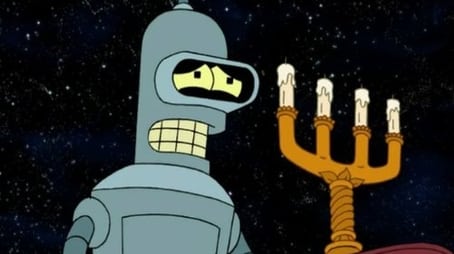
Sorry, we have not watched this yet.

Bender is accidentally shot out of the ship's torpedo tube and becomes lost in space. Floating through the ethereal darkness, Bender becomes inhabited with tiny alien life forms, but has trouble playing God to their unyielding prayers.
Sorry, we have not watched this yet.